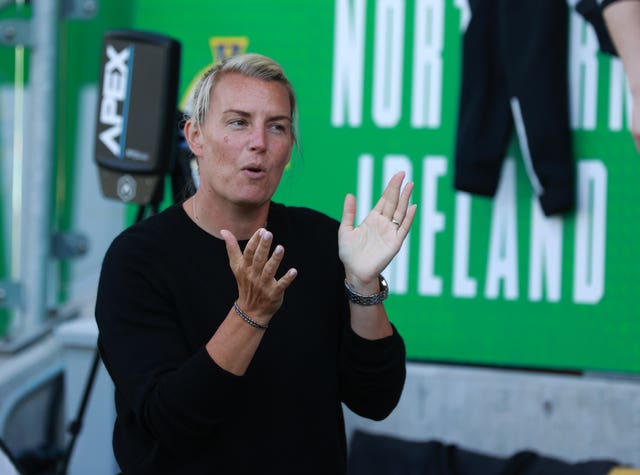Northern Ireland women’s coach Tanya Oxtoby believes more needs to be done to support mental health in the women’s game.
With increasing popularity over recent years and a move into the mainstream, players are now facing bigger pressures, whether it is dealing with higher expectations or the pitfalls of social media.
Oxtoby, who worked as a government psychologist in Australia, specialising in mental health for young people, acknowledges progress has been made but says resources remain inconsistent across the game.
“I think it’s probably more discussed now, which is a real positive thing,” she told the PA news agency.
“I think the support for players is there, which is good. I think there’s still a disparity between leagues in the women’s game and maybe even between clubs in leagues, as to the amount of resources there for mental health.
“With the success of the women’s game and how it’s growing now, the pressure that goes with that, whether that be on social media or internally within clubs or fanbases, it has an impact on individuals and the support needs to be in place.
“There’s still work to do. It’s probably not exactly where it would like to be, but it’s definitely a recognised area that is hopefully going to be catching up as the game progresses.”
Oxtoby, who leads Northern Ireland into a crunch Euro 2025 qualifying play-off against Croatia later this month, is working on the Chase Football Coaching Programme, which provides fully-funded access to coaching qualifications for individuals from low-income backgrounds across the United Kingdom.
Oxtoby believes the programme will particularly help women get into coaching and break down some barriers which still exist.
“It’s about taking away some of the barriers around the inclusivity,” she said.
“I know being a female, going on some of those coaching courses can be quite daunting at times.
“When we’re talking about people from low-income backgrounds, you want to feel like you belong on courses and it’s important we get more role models in those spaces so that we can encourage more people to take the big step forward.
“Particularly in female football, coaches don’t get paid the massive, massive bucks.
“So it’s an investment, which is why it’s really important with programmes like this.”
Research has shown that 64 per cent of existing coaches have said coaching has improved their mental health while also offering transferable skills.

Oxtoby said: “It has a really positive impact on the mental health and transferable skills, like teamwork and communication.
“I would say communication is probably the biggest skill that I’ve learned and especially as you go further up in terms of the coaching sphere when you’re working in high-pressure environments, communication is massive.”
:: For more information on the Chase Football Coaching Programme, visit: https://www.chase.co.uk/gb/en/chase-football-coaching-programme/

